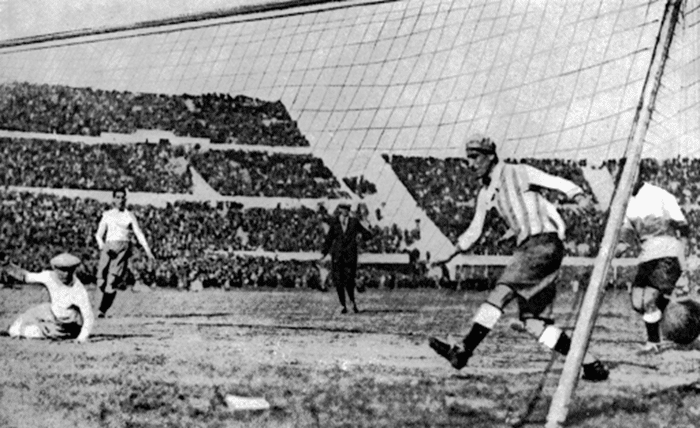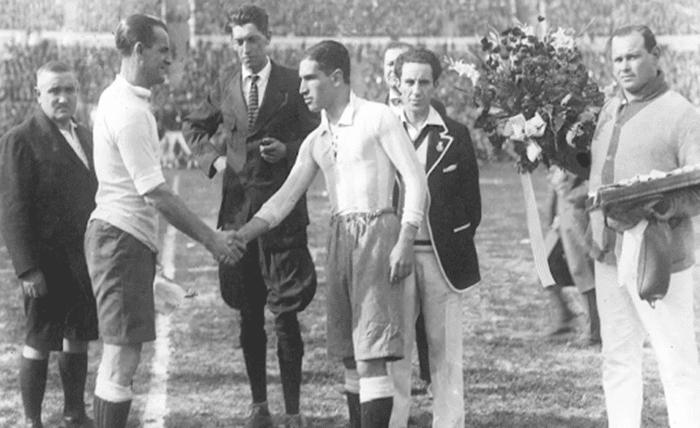The First World Cup: How It Started and What Happened

The FIFA World Cup is the most prestigious tournament in football, drawing millions of fans worldwide. But how did it all begin? The first-ever World Cup was held in 1930, marking the start of a global football tradition that continues to captivate audiences today. Fans looking for the best way to experience live matches can check out Xoilac TV for top-notch coverage.
The Birth of the World Cup
Before the World Cup, international football was mainly featured in the Olympic Games. However, with the growing popularity of the sport and the limitations of amateur-only participation in the Olympics, FIFA decided to create its own global tournament. In 1928, FIFA, under the presidency of Jules Rimet, announced plans for the inaugural World Cup.
The Host Nation: Uruguay
Uruguay was chosen as the host country for the 1930 World Cup, largely because of its dominance in international football and its centennial celebration of independence. The South American nation had won gold at the 1924 and 1928 Olympic Games, proving itself as a football powerhouse. Additionally, Uruguay pledged to cover travel costs for participating teams and build a brand-new stadium, the Estadio Centenario, to host the matches.
Participating Teams
Unlike today’s tournaments, the first World Cup had only 13 teams. Due to the economic struggles of the time, particularly the Great Depression, many European teams were hesitant to make the long trip to South America. Eventually, four European teams—France, Belgium, Yugoslavia, and Romania—joined nine teams from the Americas, including Argentina, Brazil, Chile, and Mexico.
The Format of the Tournament
The tournament structure was different from modern World Cups. Instead of knockout rounds from the start, teams were divided into four groups, with each group winner advancing to the semifinals. The matches were held in Montevideo across three stadiums, with the newly built Estadio Centenario serving as the primary venue.
Notable Matches and Moments
- The First Ever World Cup Match: On July 13, 1930, the first matches of the World Cup took place. France defeated Mexico 4-1, while the United States beat Belgium 3-0.
- Argentina vs. France Controversy: During Argentina’s 1-0 win over France, the referee mistakenly blew the final whistle six minutes early, causing confusion before the game resumed.
- The Semifinals: Argentina and Uruguay dominated the group stage and went on to win their respective semifinals convincingly—Argentina crushed the United States 6-1, while Uruguay did the same to Yugoslavia.

The Historic Final: Uruguay vs. Argentina
On July 30, 1930, the first-ever World Cup final took place at the Estadio Centenario in front of around 93,000 fans. The match between Uruguay and Argentina was highly anticipated, given their intense rivalry. Argentina led 2-1 at halftime, but Uruguay made a thrilling comeback in the second half to win 4-2, securing their place in history as the first World Cup champions.
Impact of the 1930 World Cup
The success of the first World Cup laid the foundation for what would become the biggest sporting event in the world. It showcased the passion of football fans and the skill of players from different nations. Despite the logistical and financial challenges, the tournament proved that international football could thrive outside the Olympics.

Legacy and Growth of the World Cup
The 1930 World Cup set the precedent for future tournaments. Since then, the World Cup has grown exponentially, with more teams, better infrastructure, and global television audiences. Today, millions of fans eagerly anticipate every edition, demonstrating how far the tournament has come since its humble beginnings.
For those wanting to catch all the latest football action, trực tiếp bóng đá Xoilac tv offers live streaming of matches, ensuring fans never miss a moment of their favorite sport.




